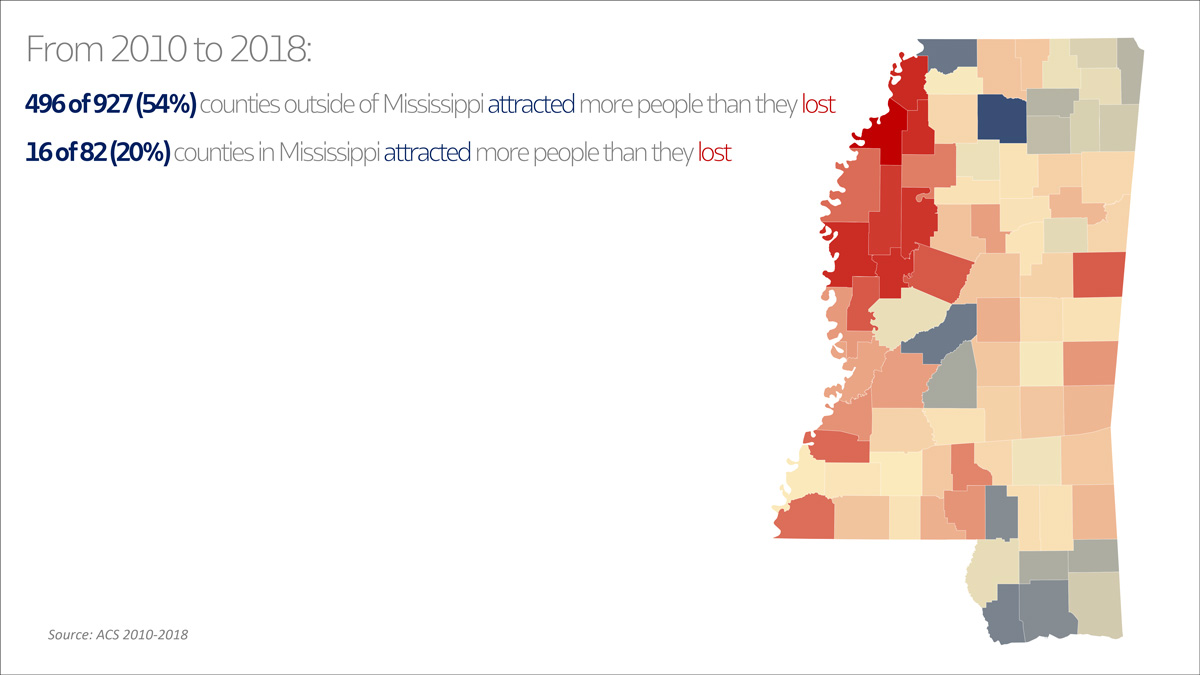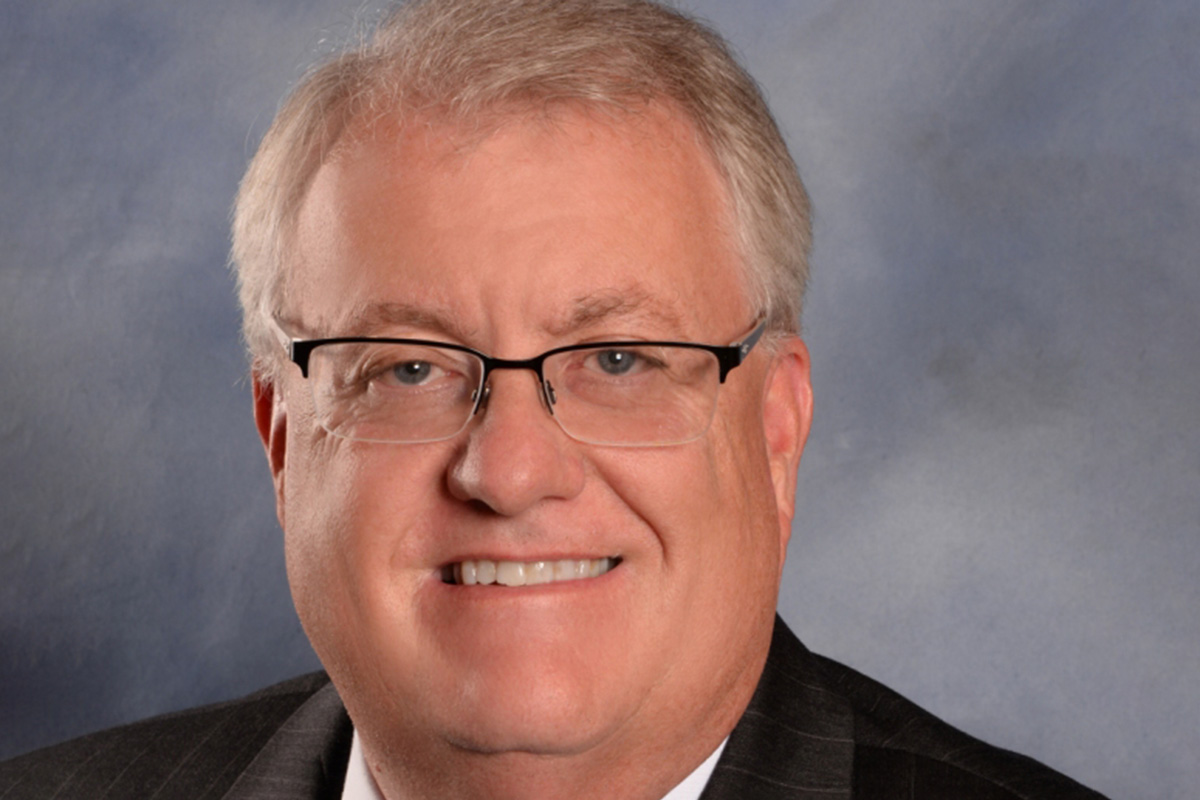As a senior at the University of Mississippi in 2018, Savannah Smith knew she would move out of the state at the earliest opportunity. “After graduating from college in May, I am leaving the state of Mississippi,” the native of Corinth, Miss., wrote matter-of-factly on oxfordstories.net that year while she was 21 years old.
“I’ve seen oppression and discrimination and some of the sincerest love and goodness of heart,” Smith added in the website article. “I’ve also seen a lack of opportunity, and because of this, I’m not alone in my decision to leave the state after graduating from college.”
She wanted to experience something different than Mississippi could offer her. “I want to have conversations with people who think differently than me and experience cultures that are different from my own,” she wrote.
As Savannah Smith neared the finish line toward earning a dual degree in public policy leadership and print journalism at the University of Mississippi, she interviewed different people who had left the state to form the core of her senior-year dissertation and to shed light on the issue.
The most recent census, released in April 2021, showed that Mississippi’s population shrank, making it one of only three states along with West Virginia and Illinois in the nation to experience a population reduction. Mississippi lost 0.2% of its population—6,018 residents—between 2010 and 2020, shifting from 2,967,297 to 2,961,279. The state dropped three spots in population size from No. 32 to No. 35.

Smith highlighted Mississippi’s loss of 3.9% of its millennial generation—those born between 1981 and 2000—between 2010 and 2016. That was the highest in the country.
“When I hear these numbers, I can’t help but think about the many people I know my age who want to leave the state,” Smith wrote. “Part of the issue is our generation’s need for instant gratification.”
“The largest metropolitan area in the state is Jackson, and it does not offer as many opportunities as larger cities (elsewhere),” she added. “For instance, a millennial may want to order something on Amazon and have it shipped to them in hours, but this feature is only available in certain larger cities such as Chicago, Nashville and Atlanta.” Later on in December of 2018, Amazon announced its first Mississippi Fulfillment Center in Marshall County.
In her post, Smith described how many of her friends moved to cities like Nashville, Dallas, Birmingham and Atlanta because they possess more job opportunities, specifically in STEM fields, and access to “many fun restaurants, art exhibits, and widely known live music acts.”
Smith was right about the STEM jobs and opportunities. Forbes reported in 2017 that Mississippi had the lowest share of science and engineering graduates in the nation and the lowest number of invention patents per 100,000 residents.
Analyst: Mississippi Subsidizing Other States
Workforce development is an important tool for helping offset these cyclical population declines, the Mississippi Economic Council argues in a new 59-page report.
After a statewide study, MEC released “Securing Mississippi’s Future: Vision for Economic Growth,” on Feb. 16, 2022, focusing on the importance of workforce development in Mississippi.
The organization noted that nearly 40% of respondents chose “lack of qualified workers” as a top issue, with 83% saying they are concerned about lack of soft skills like showing up for work on time, having initiative, speaking skills, dressing correctly for the job and addressing conflicts with communication.
“When asked about hiring plans, two out of three respondents said their organization planned to be hiring within the next year,” the report added. “And two-thirds also said that when they did hire that the workers would not be ready to do the job.”
“The number-one issue facing growth in Mississippi can be summed up easily: there are not enough qualified workers for current jobs, and even those willing to enter the workforce are not prepared for the task at hand,” the report added. “This concern was spread across public and private sectors—hospitality, healthcare, manufacturing, retail, transportation and other sectors that were represented in various meetings.”
The report, however, only devoted four paragraphs to the need to retain and attract younger graduates. The Chamber recommended the development of a talent attraction/retention program, which would include incentivizing young professionals to work and live in Mississippi.
“Among the options are down-payment assistance for first-time homebuyers or out-of-state workers willing to live and work in Mississippi for at least five years; student loan forgiveness for professionals willing to remain in the state; offering free or reduced tuition for in-demand career programs at public universities for students who commit to working for at least five years in Mississippi; or developing tax credits or other incentives for those willing to stay or relocate to the state,” the report stated.
The report noted that research from Economic Leadership shows Mississippi ranks 31st nationally in expected technology occupation growth between 2020 to 2025.
“Expanding coding academies across the state creates an excellent career opportunity for students and provides businesses with both a source of trained tech talent and a way to insource vital work,” the report added. “The Mississippi Coding Academies and Innovate Mississippi are looking to continue expanding this unique training by raising additional funding, including applying for a Good Jobs Grant from the U.S. Department of Commerce’s Economic Development Administration.”
“If funded, this provides a way to integrate employers and potential employees and help make Mississippi a software development center.”
Independent policy analyst Jake McGraw, who until December 2021 worked with The William Winter Institute for Racial Reconciliation, told the Mississippi Free Press on Feb. 23 that workforce development is only part of the solution for making staying in the state attractive.
“If you’re not able to keep them in Mississippi after they complete their education, then what you’ve done is effectively subsidize the economy of another state,” McGraw said. “That’s something that we’ve seen happening consistently through the brain drain is that Mississippi—even though we are the poorest state in America—has been contributing far more to the economies of other states than we receive.”
Between 2010 and 2020, 72,673 more people left Mississippi than moved in, McGraw shared in a slide he prepared in January 2022. That number only slightly falls short of the population reported in 2020 for Gulfport, Mississippi’s second-largest city after Jackson.
“If you think about it in those terms, you can understand the economic cost as well as the social costs, the human cost of exporting that many people,” McGraw said.

He also indicated that in 2019, Mississippi natives who left the state were 50% more likely to have a four-year college degree than Mississippi natives who stayed and 10% more likely than non-Mississippi natives who moved into the state.
‘Young Educated People Want to Leave the State’
Based on her findings in her 2018 dissertation, Smith concluded that Mississippi has a brain-drain problem for multiple reasons, which would require an honest and full menu of solutions.
“Young, educated people want to leave the state for a number of reasons, from lack of opportunity to a perception that state policies encourage discrimination,” she wrote, acknowledging the perpetual elephant in the Mississippi room. “Mississippi has to be honest with itself about the number of millennials leaving and how this is going to affect the economy and well-being of the state for years to come.”
McGraw supports the notion Mississippians are leaving for reasons beyond career opportunities alone. “More common is that people think about the type of community that they want to live in, the type of lifestyle that they want to have, the quality of life that they want to have, and so that opens up a whole, a much broader side of considerations,” he said.

“We can see that Mississippi is not providing nearly the same level of social supports, of amenities, of opportunities; certainly we’re not as welcoming to people who were sort of not in the majority, racially or in terms of nationality or sexual orientation,” he added. “So we do a lot of things that drive people away that are outside of this sphere of just this kind of pure economics and workforce (conversation), outside those spheres.”
McGraw indicated that between 2010 and 2018, while nationally 496 of 927 counties (53.5%) attracted more people than they lost, only 16 of 82 counties (19.5%) in Mississippi attracted more people than they lost.
“So this is something that’s happening on a large scale, something that’s happening throughout the state,” he said. “It’s not just concentrated in one region of the state. Most parts of the state are losing more people than they’re attracting.”
People will not come to the state, and many of those here leave, McGraw concludes, because Mississippi lacks large cities, because higher education generates higher salaries elsewhere, and because minority groups and outsiders face barriers and cultural hostilities.
He said the workforce development that MEC advocated in its recent report only addresses one aspect of the problem: increasing labor-force participation in the state.

The MEC report does state that creating an appealing community life is essential for retaining and attracting young professionals without mentioning the fears of discrimination and other negatives and inequities that many Mississippi expatriates cite, including at the hashtag #MSBrainDrain on Twitter.
The report mentioned the need to make community life appealing to the younger people, including broadband access, walkable communities, night life, job growth, quality jobs with higher income, affordable and available multi-unit housing and vibrant downtowns.
“As graduates reach their 30s, other issues (become) of more importance,” the report added. These issues were often mentioned as reasons graduates tend to move back to Mississippi after starting careers in other states: safety for children, good schools, affordable homes, closer to family.”
MEC: Not Enough Qualified Workers For Current Jobs
MEC zooms in on a major symptom in Mississippi’s economic/brain-drain sphere of problems. The state has the second-lowest labor-participation rate in the country at 70%, more than only West Virginia, at 67.8%. Much of that is about the lack of training.
McGraw agreed, saying that there are a lot of people who are in Mississippi with no plans or opportunities to move who are not able to access the jobs that do exist here. “And I think that filling that gap is important in terms of just allowing for a better standard of living (and a) better quality of life for the people that are in Mississippi and are planning to stay,” he said.
“If you were able to make Mississippi a place that people want to live, then it makes providing good jobs and good salaries a lot easier,” he added. “I think that you’ll see a lot of economic benefits, natural economic benefits, to solving the brain-drain problem and giving more people reason to stay.”
Between 2011 and 2016, Mississippi exported $169 million in aggregate income per year, McGraw reported. The top three states to benefit from the exodus of laborers were Texas with an annual bonus of $52,651,000, Florida with $49,615,000, and Tennessee with $19,650,000.
“Mississippi’s movers from 2011 to 2016 transmitted a cumulative $1.4 billion in income to other states,” McGraw added. “The largest recipients of Mississippi’s brain-drain subsidy (over the five-year period) are Texas ($530 million), Florida ($323 million), Tennessee ($175 million), and Alabama ($156 million).”
The MEC report also mentioned the importance of good salaries. “Compared to the national average, Mississippi’s per capita income lags by almost $10,000, according to the U.S. Census,” the report said. “The state does have some key advantages that it can use to boost the overall income for our citizens. According to the World Population Index, Mississippi has the lowest cost of living in the country.”
“Additionally, Mississippi ranks in the Top 10 least expensive states to run a business, as the Business Cost Index 2021 ranks Mississippi the 9th cheapest state to run a business.”

State of Mississippi leaders’ current primary strategy for attracting more jobs to Mississippi is gutting the state’s income tax, saying it will charge the economy and attract more business and industry. Detractors say the cuts will bring the kind of economic crisis that a similar strategy brought to Kansas and will hit poorer communities hard, reducing funds that in turn could bring the kinds of changes to systemic issues that many Mississippi expatriates say drove them away in the first place. Eliminating or reducing the state income tax will cut into the ability to repair problems that drive Mississippians away, as well as improve job readiness for those who stay, One Voice Mississippi policy analyst Kyra Roby wrote in a recent MFP Voices essay.
“Policies that advance the shared priorities of all Mississippians, such as quality schools, affordable health care, safe neighborhoods, affordable housing, criminal justice reform, equal voting rights, good jobs, livable wages, a healthy climate and solid infrastructure, should be our main concern,” Roby argued. “The elimination of the individual income tax will guarantee that these priorities are not met.”
According to the MEC report, Mississippi’s tax environment was not high-profile nor ever discussed significantly as a priority, and some respondents opined that it will drive up other costs. During one of the meetings where the chamber received feedback from community leaders for the report, on Aug. 31, 2021, a Hinds County businessman “dismissed (eliminating state income tax) as a bad idea (a distraction issue, but not really a hindrance to most businesses),” the report noted.
“In another meeting (in DeSoto County) keeping state income tax was noted as becoming a possible issue where Mississippi doesn’t align with other states,” the report added. “One business owner was concerned that when he moved his business from Memphis to DeSoto County, his workers that could move would suffer an immediate loss of income from the state income tax.”
“Others commented that we’re not other states—we have a smaller economy and one of only three with population loss.”
On Feb. 28, State Auditor Shad White announced an effort to stem brain drain by attracting accounting students to work for his office.
In exchange for college tuition, books and fees payment, the students agree to work at the Office of the State Auditor after graduation for at least two years. The program is open to accounting undergraduate and graduate students in Mississippi colleges and universities and includes a paid internship.
“I’ve traveled the state these last three years telling young people why they should stay in Mississippi,” Auditor White said, “but Mississippi needs to find new ways to entice young people to stay here through professional opportunities.”
“This scholarship model has worked in other places,” said White. “Our Stay in the ‘Sip Fellowship will convince some students that might otherwise leave to stay in the state. My hope is this will start a conversation about other policies the state can adopt to keep talent here.”
The press release also revealed that Faith Gilmore—a senior accounting student at Millsaps College in Jackson—is the inaugural fellow.
Still, to the points Savannah Smith and others make about culture in Mississippi, White recently drew attention for his support of limiting access to certain books about racism and other issues.
Mississippi: A ‘Large Social Club’
In her 2018 thesis, Savannah Smith relayed conversations she had with peers about why some of them wanted to leave the state after graduation.
Smith moved to New York City after studying at the University of Mississippi and gained a master’s degree in magazine journalism from New York University, as she detailed on her personal website where she described herself as a writer and multimedia journalist. After stints as a digital-politics intern at NBC News and print-editorial intern at New York Magazine, she accepted a position as NBC News Digital coordinator from February 2020 to October 2021. She has been the NBC Universal news digital growth team analyst since then.
“For some, they had spent their entire lives fighting for equality and inclusion and just wanted to experience what it felt like to live somewhere that did not feel as much like a large social club as it did a state,” Smith wrote in 2018.
Mississippi’s historic and current attacks on diversity, equity and inclusion in the state are not the only reason people leave, she added.
“Others just wanted to know what it felt like to live somewhere where they could go to the grocery store and not be known by seven people,” Smith wrote.






